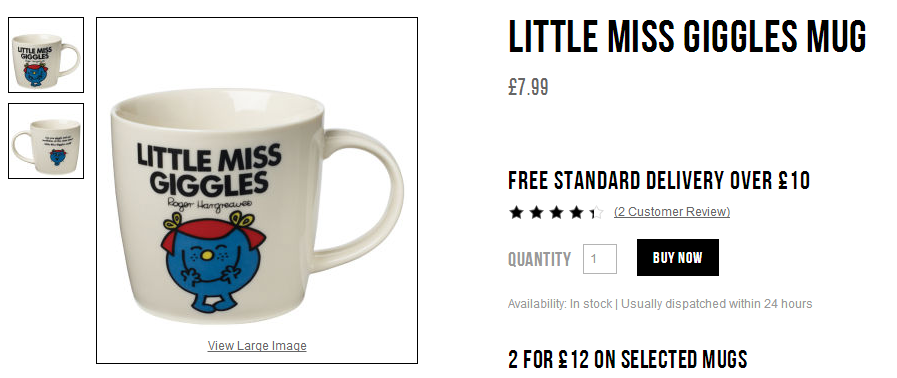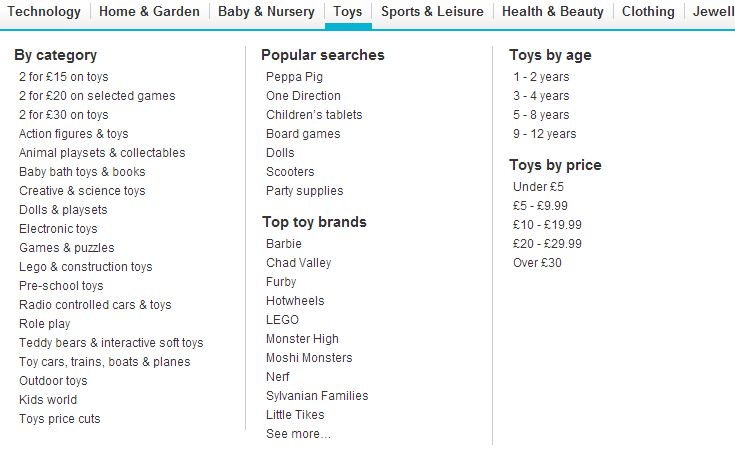Tag Archives: feminism

On losing weight
New year’s resolutions are generally a bit crap, but as it’s timely I’m going to tell you about a resolution I’ve been working on for the last month or so, which I’ll carry through into the new year because time is linear like that.
I need to lose some weight.
It’s not urgent, but I’ve decided that my happiness depends on shaving off a few pounds so I can jiggle around the house to showtunes without feeling my tummy wobbling out of sync to the rest of me.
There are three things I hate about this, and believe it or not none of them have anything to do with diet or exercise. Sure, I prefer cider to soup, and running my arse round the block is about as tempting as queuing for One Direction tickets, but these are just things you have to do to lose weight, so I bear no grudges against biology. But there are some things about dieting that bother me.
The detox bandwagon
The first and most obvious thing is the patronising, sexist market that surrounds female weight loss. Don’t get me wrong, there’s an irritating market surrounding male health too (Get ripped in 8 weeks, lads, with this one weird old trick). But given that I am a woman, the female stuff leaps out from the shelves and smacks me in the face more forcefully.
Magazines trumpet ‘detox time’, as if it’s a long-established calendar event: that all women, for the month of January, will eschew booze and munch salads. Because if we don’t do this there’s a very real danger that we’ll just disappear into a fatty swamp of chemicals.
It’s bullshit, mostly. There’s really no such thing as ‘detoxing’, and if we didn’t consume any chemicals we’d die. But since the first marketeer sat down and said “hey I’ve got this great new product it’s like water but better because it costs two quid a bottle” we’ve been dragged into thinking that ‘detoxing’ is not only a real thing but something that all women should do throughout the month of January. Unfortunately, the more of us do it, the more it reinforces the idea that we should all be doing it.
So now I am in a position where I feel guilty for dieting in January, because I am propping up a ridiculous ad-driven concept of the New Year detox, but similarly guilty if I don’t, because I am a woman and therefore should be thinking about calories every single minute that I am not either buying shoes or tearing hair from my pudenda. It’s a pickle.
The ‘oh but you’re not’s
Why is it that, when I mention the fact that I’m a bit chubby, people feel compelled to tell me I’m wrong? Seriously, why?
I’m wrong about a million and one things. Once I argued that the battery life on an iPhone was shorter than the time it’d take me to commute to and from work, and the other day I spent a good twenty minutes insisting that Brad Pitt couldn’t be a day over forty. Wrong on both counts, of course, but not everyone feels compelled to point that out: often they just roll their eyes and let me continue down the path to future embarrassment.
But when it comes to weight, people are keen to insist I’m wrong even when I’m plainly and clearly right. When I say I’m trying to lose a bit of weight (usually in response to someone trying to guilt-slip yet another mince pie down my throat), people leap insistently out of their seats crying “OH NO YOU’RE JUST BEAUTIFUL AS YOU ARE”, as if the world will stop spinning if they let me believe I am anything other than perfect.
Why do we do this? It is, of course, mean to walk up to a friend and announce “you could stand to lose a few pounds, mate.” But I’ve got a mirror – I can see what I look like. And what I look like is an averagely attractive person who could do with losing a bit of weight. You’re neither evil nor a bully if you let me get on with it.
To add insult to injury, although gentlemen friends are allowed to make self-deprecating jokes about their weight, as a woman any mention of weight gain is treated as blasphemy. The poor gents who actually do want reassurance are left out in the cold, listening to the lilting sounds of “who ate all the pies”, while girls hiss “blasphemy!” at each other if one raises the possibility of dieting. This situation sucks for all of us.
Will you still love me when I’m thin?
“I love you no matter what.”
It’s a lovely sentiment, designed to elicit the same warm fuzzy feeling people imagine they’re conjuring if they tell you that you don’t need to lose weight. And yet it’s rarely evoked the other way around. Someone who goes on a diet is rarely reassured “I’ll still love you even when there’s slightly less of you filling those knickers.”
Loving someone when they’re fat is seen as a noble and beautiful thing, as opposed to just something that happens when someone you love piles on a few pounds (or, indeed, if you fall in love with someone who doesn’t have the proportions of a runway model – i.e. almost everyone). If we really meant it then there’d be no question whatsoever about whether we’d stay with a partner who weighed more than average: therefore no need for any reassurance that our deep and true love transcends weight.
Moreover, as I’m confident the sun will rise tomorrow, I know that if I woke tomorrow lighter and tighter your love would not wane. It’s not my weight that’ll put you off, but the things I have to do to stay like that – the act of losing weight itself. You’ll love me when I’m fat, sure, but I think loving me when I’m calorie-counting might be more of a challenge. Will you still love me when I ask you to eat salad to keep me company? When I swap my legendarily awesome macaroni cheese for quinoa? When I neglect your blow jobs to go to the gym?
We’ll see.

On the 12 sexist (and not-so-sexist) Christmas gift lists
Humbugs abound as I do my annual Christmas shop. Not because I don’t revel in the idea of finding exciting and unique gifts to shower upon my loved ones, but because everywhere I turn I’m confronted with ridiculous lists of ‘gift ideas for him’ or, indeed, ‘her.’ In honour of this horror, here are my 12 sexist (and not so sexist) Christmas gift lists.
On the first day of Christmas my true love/friend/mum/colleague who drew my name in the office secret Santa gave to me…
1. A Ryan Gosling tea-towel
That’s right, number one on the Prezzybox list of ‘stocking fillers for women‘ is a Ryan Gosling tea towel. Because if there’s one thing women love more than spending quality time in the kitchen, it’s drying pots and pans with a celebrity’s face. Bonus points for trying to persuade us to spend almost an entire tenner on a ‘stocking filler’.
Note that those who might not have been tempted by the Ryan Gosling tea towel might instead like chocolate pills. So what’s the equivalent for men?
2. Tabasco-flavoured chocolate
Luckily the man in your life can have chocolate in his stocking too, but none of this ‘chocolate pills’ nonsense. This sweet treat for your man is Tabasco-flavoured. According to prezzybox, to women chocolate is some sort of emergency medication, but to men it is a delivery mechanism for SPICY HEAT.
3. A gendered gift experience
For those with more money to spend, why not treat your loved one to a special day? They can go paintballing, if they are blue, or for afternoon tea, if they are pink. Boots actually gets bonus points in the ‘trying not to be too sexist’ stakes, because when you click on either of these panels they take you to the same page. If they get rid of the pink ‘for her’ and blue ‘for him’ landing pages next year, Father Christmas might take them off his ‘naughty’ list.
4. A mug that kills women who touch it
There’s nothing more traditional than a mug with a crap slogan, and iwoot (the website formerly known as I Want One Of Those Dot Com) has come through with a few. Their gifts for him offers the ‘man mug‘. It comes complete with spirit level, to check how horizontal your masculinity is. It also has a sign on the bottom which makes it absolutely clear the mug is Not For Girl -, I can only assume that if a lady drinks from it, she is instantly poisoned:
Still, ladies mustn’t worry, because if they’re lucky then they’ll get a mug in their stocking too. For women iwoot suggests this ‘Little Miss Giggles’ mug (spirit level definitely not included):
5. Virgin experiences
If you’re after a special day out, Virgin’s one-upped Boots and does indeed have special, separate pages for women and men. Phew. No more wading through spa days when you want to buy a dude a day out: it’s cars and paintball almost all the way. I say ‘almost’ because… what’s this?
That’s right – a special afternoon tea. Not one of those boring ladies’ ones with sandwiches, no. This one has been (as the copy explains) ‘designed to satisfy a man’s taste and appetite’. Which it turns out means switching sandwiches for mini toad-in-the-hole. Oh, and illustrating the ‘tea’ with a picture that contains ‘beer’. Although, according to the copy, there will only be a choice of tea or coffee, there is beer in the picture because that is what men like. See below.
7. Beer, glorious beer
How much do men like beer? A lot, according to totallyfunky.co.uk.
Of course these beer-related items only appear first because the list is alphabetical, and if you scroll down further you’ll see that men also like Darth Vader and eating out of dog bowls.
So that’s Christmas sorted for your dad/brother/husband etc. But what should you get your daughter? Totallyfunky suggests bath products, gloves, and a shoe that you put a spoon in. Or you could go for…
7. Anything to do with One Direction
If the lady you’re buying for is a bit too young for the Ryan Gosling tea towel, The Works has you covered. With One Direction. EVERYWHERE.
Of course, boys don’t like One Direction, so instead they get dinosaurs and helicopters.
8. Not-so-sexy underwear
One of my personal bugbears is that when it comes to Christmas underwear, straight guys are encouraged to buy something sexy, slinky, and sensuous for their partners, whereas straight women are offered a selection of comedy Christmas socks or hilarious cock-cosies with which to wow him. This red-hot image brought to you by TopMan…
9. A world I don’t want to live in
Onwards, now, to presentfinder, where boyfriends are ‘difficult’ and girlfriends are ‘gorgeous’. It’s tricky to compare these gifts because they’re all so twee and quirky, but essentially we’re being asked to believe in a world where men like booze, money and edible tits which come in a tiny metal box:
While girls like pink VW camper vans, and being given plasters for Christmas.
Is there a better way to write Christmas gift lists?
If we say to shops “hey, this Christmas gift list is a bit sexist, isn’t it?” their response will most likely be “but it has to be – this is the stuff you’re searching for, and the stuff you end up eventually buying. If we were to stop being twats about it we’d never sell anything.” Which is partly true. We do search for ‘Christmas gifts for her’ and ‘Christmas gifts for him’ (although it looks like we’re doing it less each year).
But that’s not to say they can’t grab our attention in other ways. It’s more than possible to market effectively without descending into lazy stereotypes. Even at Christmas.
To round off the twelve, here are a few examples of shops that, I think, are doing it better.
Not-so-sexist Christmas gift lists
10. Lovehoney’s underwear hot-off
As mentioned above, I dread the ‘Christmas underwear’ thing. Mainly because it seems the idea is for a woman to receive something sexy and lacy and beautiful, and a man to get a comedy santa-hat for his bellend.
So credit, then, to Lovehoney. As a sex toy retailer, it’d be pretty hard for them to not split their toys by sex, given that so many of them depend on the sex organs that you have. So their ‘gifts for her‘ and ‘gifts for him‘ pages make sense. But on top of that, they also have the same feel: these gifts are genuine gifts for people. It’s not split by comedy vs sex: there are genuinely sexy pants for the guys, and toys that individuals will actually play with (rather than giggle at) on both sides of the sex divide.
UPDATE September 2017: Well this is very embarrassing. It’s actually not necessary to split sex toys by gender – it’s far more helpful to split by category in this instance too. Not only because there’s no need to list out e.g. ‘butt plugs for men’ (spoiler: butt plugs can be used by anyone who has a butt) but it also excludes trans and non-binary people.
11. Argos
To show it’s possible to sell children’s toys without painting half your website pink and shouting “YOU WANT TO BE A PRINCESS, DON’T YOU, PRINCESS?!” here’s a picture of the Argos ‘toys’ menu:
Do you see? Toys divided by category, brand, age and popularity. If you can find any hint of gender segregation there I’ll give you a mince pie.
12. Marks and Spencer
Correct me if I’m wrong, but I’ve had a peruse of the M&S ‘Christmas’ page, and I can’t find anything that is unnecessarily gendered.
It appears that the nation’s favourite place to buy socks and knickers has resisted compiling lists of ‘gifts for him’ and ‘gifts for her’. They stick to ‘men’ and ‘women’ for clothes, which is understandable given that’s how they split it in the shops, but there don’t seem to be any lists of gifts ‘for him’ or ‘for her’. The only page I can find where they categorise gifts is by personality. “Gifts for foodies”, “Gifts for gardeners” and suchlike.
For that they get a gold star to stick on top of their Christmas tree.
The examples above are, of course, the product of my own frequently-flawed opinions and half-arsed research via Google. But I’d welcome any more examples (especially ones of shops who do it well) in the comments or via Twitter. Please tag them with #RyanGoslingTeaTowel, because Christmas should be FUN.
How to not be sexist at Christmas
Every good Christmas story has a moral, and this one’s no different. Just as it’s possible to sell toys without labeling them ‘for boys’ and ‘for girls’, it’s more than possible to flog your Christmas deals without assuming that men want beer and women want bubble bath. Not only will you get my admiration if you split your Christmas deals by personality, you’re also (prepare for a shock) making it genuinely easier for me to find the perfect present. After all, we’re not painfully simple creatures: we usually know more about the person we’re buying for than simply what gender they identify as.
I know that Sarah likes cooking, Bob likes cosy sleepwear, and yes, Ashley is a big fan of both Ryan Gosling and drying dishes. It’s a damn sight easier to find these presents if you narrow it down by something useful.

On my most embarrassing fantasy
We’ve all got things that we fantasise about which, were they to happen in real life, would disgust or annoy us. Things that might get our genitals throbbing but which cause the moral part of our brains to rebel, and give us a post-fantasy stern talking to.
My most embarrassing fantasy isn’t sexual – it isn’t even exciting. But it’s the one I have spent the most time on in the last week. I close my eyes, block out all the things I should be thinking about, and spend a few minutes on my idle dream.
What’s my most embarrassing fantasy?
I dream of being saved. Not in a knight-in-shining-armour way: it’s far more tedious and practical than that.
I retreat to this shameful fantasy when I’ve had a bad week and everything seems to be going wrong. When I end every day miserable and exhausted and knowing that the next day will be the same. When I sit at my laptop, babbling nervously into a to-do list and panicking about all the things yet to be crossed off, I dream that – corny as it sounds – my prince will come.
He won’t marry me and whisk me away to a suburban idyll, he’ll just come to hold me, let me sob dramatically and unnecessarily on his shoulder, before making a few phone calls that melt all my troubles away.
When I’m down, and sad, I dream of a man who can do all the things I just don’t want to do. Ringing insurance companies, rewriting my CV, replying to emails that have languished unhappily at the bottom of my inbox. My prince: the pragmatic multi-tasker.
Because of all the things someone could ever give me – money, power, a nice thick cock and a regular eye-rolling fuck, the most valuable thing they could ever give me is time.
Why is this an embarrassing fantasy?
I am a capable, reasonable, competent human being. Honestly. Last year my boiler packed up and I managed to get a replacement without either
a) getting ripped off
b) leaving it so long I had to shower in freezing water or
c) sobbing wildly on my kitchen floor shouting “why won’t you just WORK you dogshit arsewipe pile of metal bollocks?!”
OK, maybe I did a teeny bit of c).
I’ve made it twenty nine years so far with only the occasional need of outside help – someone to show me where the stopcock is, the odd spider that I just can’t handle, that sort of thing. And yet despite my pathetic pride and determination to do nearly everything myself, I occasionally let my mind wander off into dreams of men who’ll do these things for me. Bleed radiators, clean kitchen cupboards, instruct solicitors and other such tedious bullshit.
I feel dirty and wrong for this, not because it’s sick or unusual in the way that many of my fantasies are. Not because it’s demeaning or degrading, but because I feel like this makes me a bad feminist. I mean, it’s not very independent, is it? The Suffragettes didn’t go through hell just so I could get a man to deal with my paperwork when I get too flustered. It goes against principles that mean a lot to me, and much of what I’ve worked for.
But still. When things get tricky, and I find myself wading through the mountain of DIY, admin and “please hold for an operator who can explain to you why we’ve suddenly doubled your gas bill” I’m not wishing for more internal strength, but for someone who’ll be strong on my behalf.
Fantasy vs reality
I’ve voiced this fantasy a few times – usually over a pint or two of gin and one of those terrifying crying attacks where your friends either cuddle you so no one can see the state you’re in or push you into the toilets to ‘get it out of your system.’
And occasionally, when I confess my fantasies of being saved, people have commented on the fact that it’s at direct odds with what I actually want in life. That if a guy came through for me on this kind of fantasy – if he cleared up my messes and cleaned my to-do list and took hold of the reins of my life, I would scream blue murder and banish him forever.
To which my reply is: of course. Of course. It’s a fantasy. Just as I don’t really want guys to beat me – I want them to spank me in a very specific way, with a very specific degree of pain, to the point where it’s hot and sexual but no further – I also want them to support me to just the right degree without ever taking away my own agency.
The most enjoyable thing about many fantasies is that if you really wanted to, you could make them come true: as with this one. But I haven’t made it come true – I just like to wallow in it. I like to sit and think and dream of my practical prince, while eschewing any kind of assistance that might make me look less than competent. So by thinking this I get to find out what my little heart actually desires – the difference between what I actually want and what I think I want.
He can still do the washing up though. There’s no shame in letting him do that.

On ‘all feminists’
There’s a lot of bullshit spoken about lots of things, and never is the quantity of bullshit larger than when it comes swiftly behind a statement that ‘all’ people of a certain type are a certain way, or have certain problems. Sure, catch-all statements are often a handy shortcut, but the more you try to crowbar into that statement the greater the chance of it stinking like a dungheap.
So, in light of Some Things I Have Seen On The Internet Recently, I feel compelled to highlight a few things about feminists. Specifically, things that – while true of some of us – are categorically not true of all of us. Here are some things that ‘all feminists’ are not:
Subject to unrelenting abuse
Some people are showered with quite horrific and appalling abuse on the internet. One of the many things that ignites the ire of a miserable and hate-filled human is a woman who not only has some opinions but has the temerity to actually say them out loud. Why, it’s enough to make them want to commit a criminal offence on Twitter. This behaviour is, naturally, disgusting.
However, I’m worried that the total shitstorm of the last few days, while fantastic at highlighting what is a genuine problem for many people, has been painted by the media as a problem for ‘feminists’ (as evidenced by the fact that articles on the topic nearly all seem to refer to a ‘feminist journalist’ or ‘feminist MP’, as if a feminist is a surprising and unusual thing to be). People behaving appallingly to each other is not just a problem for feminists – it’s a problem for our entire society. Moreover, although many of the most prominent victims of Twitter threats are loudly and proudly feminist, there are many people who receive this kind of abuse who are not.
Additionally, I want to point out that although being a loud, stampy feminist might mean you’re more likely to be targeted by a subset of antisocial cockwipes, you aren’t guaranteed to get this treatment just because you are a feminist. Why is it important to say this? Two reasons:
– I don’t like the implication that you could make the abuse stop by just calming your feminist views down a bit, or shutting the hell up.
– I don’t want to think that there are people who’ll be too scared to talk about their opinions because a few unconscionable cunts fire all-caps hate-tweets at prominent women.
You might get shit: you might not. I just want you to know that it’s not guaranteed, and it’s not something you can prevent just by not having an opinion. On to the next thing ‘all feminists’ are not:
Women
Some of my best feminist friends are men, and all that. More importantly, these feminist men fall into the same camps as the people in the previous category: some of them get awful abuse and threats on the internet, others don’t. There is no way of predicting or preventing this stuff on an individual basis. Whatever your views on how we, either technologically or as a society (or both) deal with the problem of online harassment, there’s never a way that you, as an individual, can prevent this.
Fighting all of the time
Another thing ‘all feminists’ aren’t doing. There’s a big discussion going on about how we deal with internet harassment. I’m undecided on the best solution because – as with most complex issues – there is nothing that leaps to the front of my mind and screams “BUT THIS IS SO OBVIOUS AND HAS LITERALLY NO DRAWBACKS.” Naturally, there’s debate – sometimes heated. However, it depresses me that the nuanced, carefully thought through arguments from a number of intelligent people have been boiled down into either ‘feminists are fighting with each other over a Twitter button’ or, even more worryingly ‘feminists are fighting everyone else over a Twitter button.’
It’s a fucking debate – we’re all supposed to be fighting. And I think, when this many people are involved, you can reliably say that this isn’t a ‘feminist’ issue – it’s a ‘people’ issue.
The same
As evidenced by the fact that a feminist can be male or female, pro- or anti-Twitter button, troll, trolled or indifferent, it’s fairly safe to say we’re not all the same. I appreciate that ‘feminist’ is a handy catch-all for some issues, but this definitely isn’t one of them.
It’s a people issue. It’s not a niche interest or campaign that we can cheer on from the sidelines but ultimately will never affect us: it’s about how we as a society behave towards each other, and we all – feminist or not – need to get stuck in.

On shaving rash vs crotch hair
Summer’s come around, eventually. Time for us to run to the park to play cricket badly, burn things on barbecues while sipping lukewarm Fosters, and – if you’re me – growl with resentment at the fact that you have to show people your shaving rash if you want to go swimming.
I shave my crotch sometimes. Not all the time – in fact, one might say I’m reasonably lax about the removal of body hair. Ultimately, shaving things takes time and effort that I’d rather spend on having fun. However, I don’t mind the occasional shave because I like it when people come all over my cunt, and I get to rub it in. I’m gross like that.
So I have no problem with shaving, or hair removal, if it’s something people want to do. What pisses me off, though, are situations where I feel uncomfortable if I don’t. Situations in which I feel singularly incapable of channeling all of the angry liberal feminist rage I feel most of the time, and simply end up looking wistfully at my crotch and wondering why I give such a massive and disproportionate shit about how it looks. In this case, the thing that has made me angry is the prospect of swimming in the sea.
Caught between a rock and a hairy place
I understand that aesthetically some people prefer smooth thighs and a bald crotch, with no pubic hairs poking out of the sides of a swimming costume, but unfortunately for me (and, I suspect, a hell of a lot of other women too) this isn’t actually an option.
The choice for me is between a hairy crotch or an ugly shaving rash, ingrowing hairs, and a desire to scratch myself that’s likely to get me arrested in public places.
When I’ve confessed this to people before, their response has usually been ‘well, why don’t you wax?’ Great thinking, kids, but unfortunately waxing makes no discernible difference to whether my cunt turns bright red and causes me immeasurable discomfort for a week. What’s more, it hurts like… well… like a sadist ripping hairs out of your pudenda.
I got my crotch waxed once, so I know what it feels like. Anyone who suggests that I do this, in the same casual tone as they would if they were recommending a certain film, needs a quick, sharp lesson in empathy. Because my God, people, it hurts. A lot.
When I regaled my Mum with the horrible tale of my inaugural cunt-waxing, she summed up pretty much how I felt about the matter.
“I had it done once,” she said “and it hurt, but only slightly more than childbirth.”
I would probably have been less upset by the pain if it turned out there was a ‘gain’ from it afterwards, but unfortunately the very next day I was nursing bright red patches and itching again, still unable to wear a bikini in case people on the beach thought I was contagious.
How do you solve a problem like a hairy crotch?
I challenged myself to write this entry without recourse to my usual rage-fuelled bile-spitting about society’s expectations of presentation and body. Not because it’s unimportant (it’s very important) but simply because I recognise that no amount of raging and ranting and writing empowering blogs on the internet can magically stop someone being bothered about crotch hair.
If someone gives you an odd look when you stand on the beach, straggling pubes waving in the breeze, your discomfort won’t be lessened any by knowing that I wrote a feminist blog about it the week before. Knowing that I shouldn’t care about this stuff – that I’m intrinsically happy in my worth as a human being whether my crotch is bald or not – doesn’t make the slightest difference to my irrational, emotional insecurity about it.
When we arrive in Utopia, no one will ever have to worry about whether they have crotch hair, or a shaving rash, moles in unusual places or stretchmarks or cellulite or any of the other things that cause us to panic. We’ll all be far too busy swimming to give even the smallest flying fuck about anyone’s perceived imperfections.
But right now that’s not helpful or comforting. Right now I’m preparing for a holiday, staring mournfully at a bikini and dreading the moment I have to show it – and whatever state my crotch is in – to the world.
There’s no conclusion to this that’s in any way satisfying. In the short term I’m buying shorts. Long shorts. Swimming shorts. The really baggy ones that go down to my knees. Twinned with a bikini top and an angry stare, they should get me through this summer, at least.
And in the longer term, well. There’ll be more angry blog posts and rants about what is not wrong with you and why no one should feel compelled to shave their body hair. And I’ll keep my fingers crossed that we reach our Utopia before summer 2014, when this whole charade begins again.













